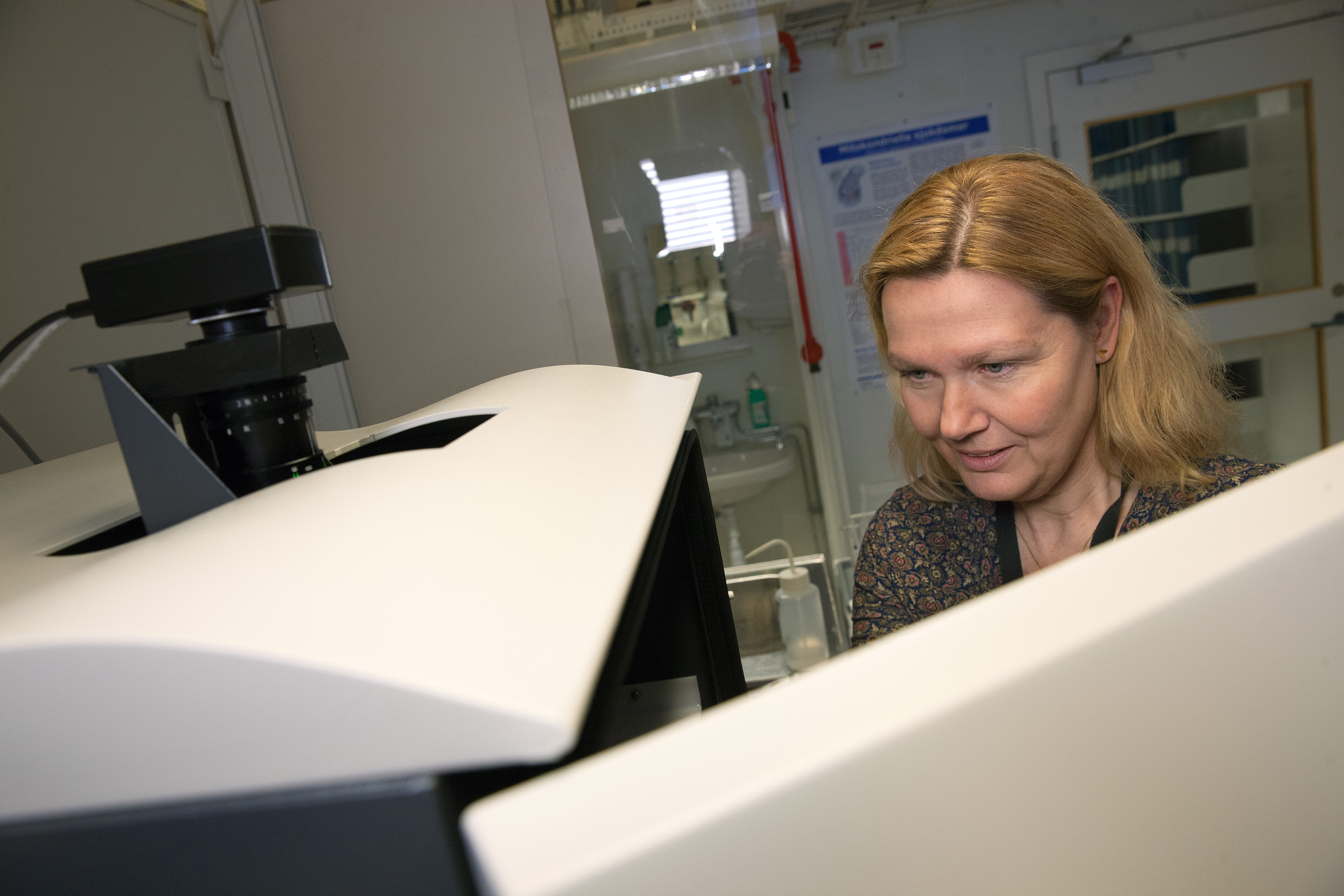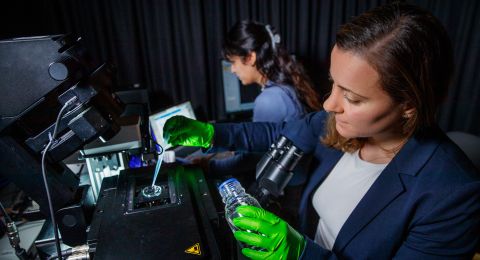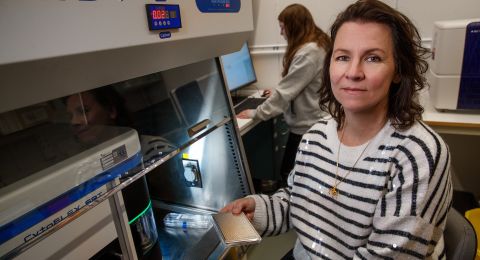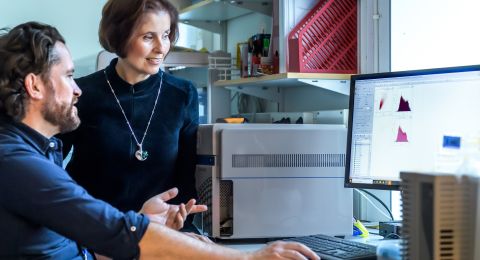
Project Grant 2013
Metabolic Disorders of the Brain
Principal investigator:
Anna Wedell, Professor of Medical Genetics
Co-investigators:
Anna Wredenberg
Nils-Göran Larsson
Anna Falk
Institution:
Karolinska Institutet
Grant in SEK:
SEK 26.4 million over five years
Inherited metabolic disorders can come to expression in many different ways. Underlying causes may involve e.g., lack of an enzyme that normally has the task of breaking down a fat-containing substance in the brain, or impaired generation of cellular energy in the mitochondria.
The symptoms are very variable. Many patients present acutely in the newborn period, but in other cases symptoms develop more gradually. After a while, problems are noted with motor skills. The child also has difficulties swallowing and moving and epileptic seizures can occur. In time, the small child may lose his or her vision, hearing and other senses. For an increasing number of diseases, specific treatment has become available in the form of specific diets, recombinant enzymes or small molecule drugs. However, for many diseases there is still insufficient knowledge on underlying mechanisms, and no available treatment.
The underlying cause can often be found in damage to a single gene. The dilemma of the research is that there are several thousand monogenic disorders of this kind, says Anna Wedell, Professor of Medical Genetics at Karolinska Institutet.
“Each of the diseases is very rare and we still have to identify all of the thousands of disease genes. But now we have the possibility to make a major leap forward thanks to technical development and the project grant from the Knut and Alice Wallenberg Foundation.”
A medical revolution
Just a few years ago, the cost amounted to several million Swedish kronor to map the genetic material of a single individual. Now, the bill is down to a few thousand SEK and the technique is both fast and reliable. This has led to a revolution in medical research.
Suddenly, it is realistic to use large-scale DNA sequence analysis to systematically identify gene variants that are possible causes of inherited disorders. Metabolic disorders are especially suitable for this approach, since a broad array of biochemical methods is available for functional validation of encountered genetic variants.
Once the researchers have found gene variants of interest, they go on to study them in fruit flies and mice, and also in cells from the patients that have been reprogrammed to become nerve cells that represent the human nervous system.

On the long term, the models can also be used to test various substances with the aim of developing pharmaceuticals.
“We hope to learn a great deal about diagnosis and treatment. We know that there are many undiagnosed patients, and we finally have a good tool to find them,” says Anna Wedell.
Discovery of new diseases
Two previously unknown metabolic disorders have already been found, leading to conceptually new knowledge of the brain’s metabolism.
On the long term, this research may also pave the way for a new understanding of the biochemical mechanisms in more common disorders, such as neurodegenerative diseases like Parkinson’s and Alzheimer’s. In these diseases, there are also elements of disruptions in the metabolism, such as defects in the mitochondria.
The mitochondria are inside our cells and are often described as the cells’ power plants. They ensure that the body receives the right amount of energy so that we will be able to move, grow and think. In the project, the mitochondria’s biology is studied to establish the basic mechanisms. Of special interest are biochemical pathways important for energy production in the brain’s nerve cells.
Anna Wedell is hopeful of achieving good results.
“We have a unique way of working by taking a holistic approach to the entire area. We work across disciplines from the basic clinical level, with pediatricians and patient materials, to the most advanced front line in biochemistry and genetics where mathematicians, theoreticians and experimental researchers are involved.”

Home of the PKU test
Anna Wedell shows us around the corridors of her workplace at Karolinska Institutet. It looks like it normally does at a laboratory. Here, there are large refrigerators where samples are stored and work benches with test tubes and microscopes. But it is not just any laboratory. Here is where the national PKU biobank is located.
The PKU test has been taken on all newborns in Sweden since the mid-1960s. The objective is to identify children with any of 24 different congenital diseases that can be efficiently treated. The risk of being affected is very small. Of about 100,000 children born every year in Sweden, there are 70 to 80 individuals who have one of the diseases included in the test.
In the future, it may become possible to expand the screening to also cover the new monogenic diseases that the researchers are now mapping.
“We contribute to many more children receiving the right diagnosis in as early a stage as possible. But in the future, the clinical benefit is not only in better diagnostics. We will also be able to develop new medicines when we better understand the basic biological mechanisms,” concludes Anna Wedell.
Text Nils Johan Tjärnlund
Translation Semantix
Photo Magnus Bergström



